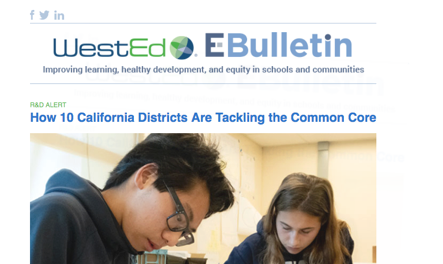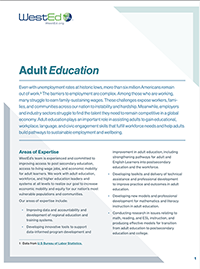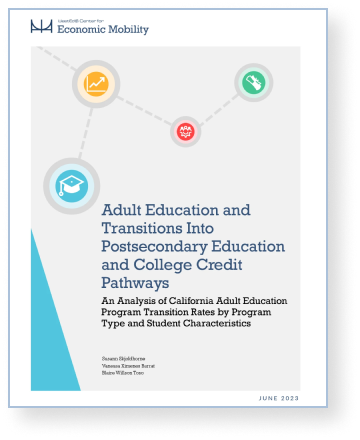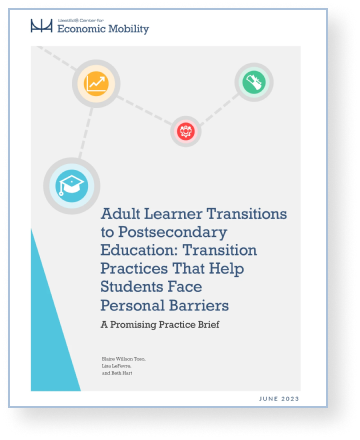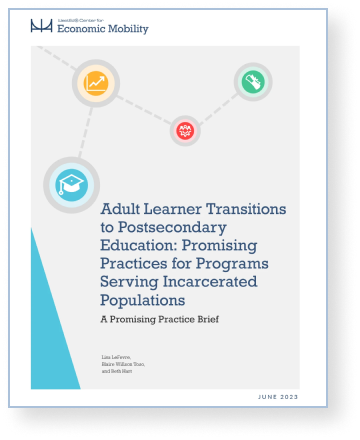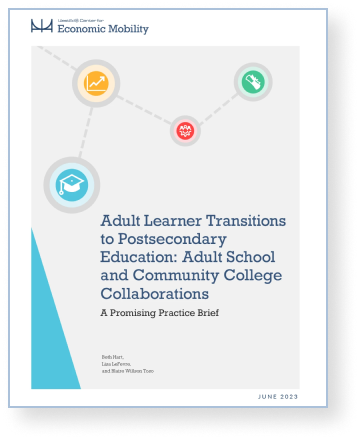Building Access, Strengthening Pathways
Education is essential for adult learners to realize their education, career, and life goals and contribute back to their communities.
To ensure adult learner success and to close equity gaps, our work builds access to social networks, college navigation skills, and career connections across K–12 adult education and community college adult education systems.
We collaborate with a range of organizations and entities to strengthen pathways to college and living-wage jobs by:
- Providing statewide, regional, and institutional trainings, workshops and technical assistance for adult education
- Creating data tools that show students, educators, and administrators how career and workforce preparation offerings align with college programs and the labor market
- Implementing online and in-person training on human-centered design and data-driven decision-making to help adult educators improve their services for adult learners
- Developing adult education research, articles, and resources

Our Work in Action
Developing a Data and Accountability Framework for Adult Education
To help track students throughout their educational journeys, we created the LaunchBoard Adult Ed Pipeline, which offers comprehensive data on progress, success, employment, and earnings outcomes for California community college students. One of the only longitudinal tools of its kind in the nation, every metric disaggregates data to help educators and administrators to better serve the needs of adult learners, particularly those who are underserved. View the LaunchBoard Adult Education Pipeline.
The LaunchBoard offers community college practitioners detailed and readily accessible information on student progress, credential attainment, employment outcomes, and labor market information all in one place.
Anthony Carnevale, Georgetown University Center on Education and the Workforce
Advancing Equity Through Postsecondary Access
To help more adults earn higher wages and become upwardly mobile, it is crucial to increase adult learners’ access to postsecondary education. This series of briefs examines multiple pathways and practices that support learners transitioning out of adult education into postsecondary education and career pathways. They share lessons learned from California Adult Education Programs (CAEP), detail practices that mitigate personal barriers, build educational and career supports for incarcerated individuals, and promote collaboration between systems and institutions.
Adult Education and Transitions Into Postsecondary Education and College Credit Pathways
A report that examines transition rates by age, race and ethnicity, course type, and program type and that raises equity and access questions.
Transition Practices That Help Students Face Personal Barriers
A brief on personal barriers for adult learners and the evidence-based supports and strategies adult education providers can use to mitigate these challenges.
Promising Practices for Programs Serving Incarcerated Populations
A brief on promising practices and implementation strategies to inform research and support career and educational pathways for incarcerated individuals.
Adult School and Community College Collaborations
A brief on shared practices and implementation strategies for providers who transition students into postsecondary and CTE pathways.
